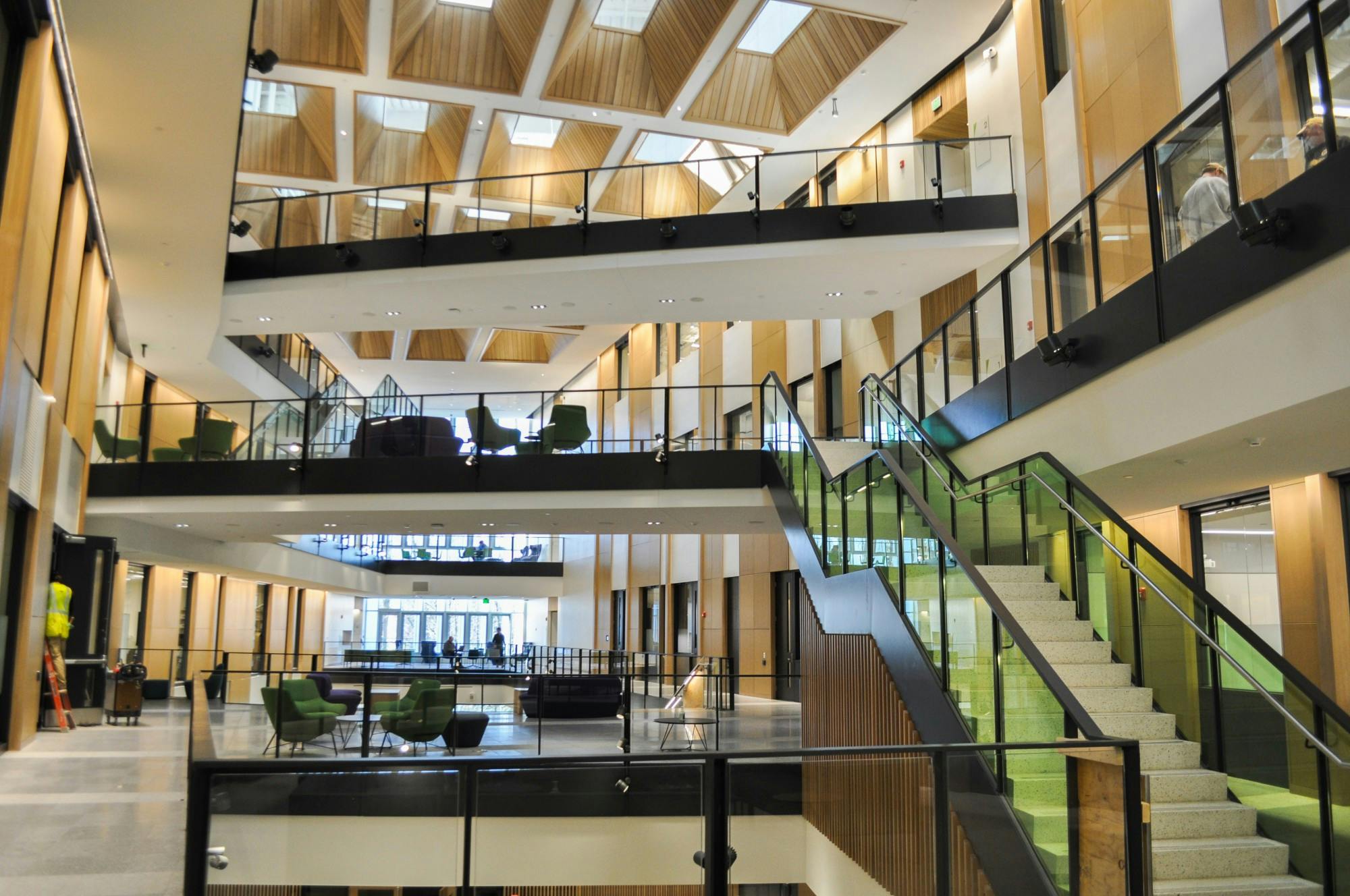HackDartmouth hosted its first in-person 24-hour hackathon since 2019, HackDartmouth VII, on April 16 and 17. At the event, students spent the weekend working in groups on digital projects and a series of winners were announced at the end.
More than 100 students participated in this year’s in-person event, according to HackDartmouth co-director Yunive Avendano ’22. In 2020, the event was canceled, and in 2021, it was held virtually, according to co-director Katherine Lasonde ’23.
Avendano said that prior to the pandemic, there were over 300 participants at HackDartmouth hackathons, which included not only Dartmouth students, but also people from the Upper Valley, Montreal and Boston. However, due to reasons related to COVID-19, she said that the in-person hackathon this year was only open to Dartmouth students.
Lasonde said that the return to large, in-person events is “really important.”
“It does build upon a sense of community,” she said. “The hackathon is important because it gives people an opportunity to try coding, [even] if they’re not necessarily in a class.”
According to an event brochure, the “hacking” portion of the event — when participants begin to code their projects — began at 12 p.m. on Saturday and ran until 10:30 a.m. on Sunday, followed by evaluations from judges and winners announced on Sunday afternoon. The event also included workshops from sponsors and other activities, such as Sunday morning yoga.
Avendano said that in addition to this year’s return to an in-person hackathon, this is the first HackDartmouth to feature a theme, which was “Into the Jungle: hack on your wild side.” Students were encouraged to participate regardless of whether they were beginner or expert coders; they also had the option to enter with a team or be placed into one.
HackDartmouth design lead Ardelle Ning ’22 said that hackathons “make you think fast” and work with new people.
“A lot of the students that participate are computer science majors,” she said, “but we also encourage designers and others who have good ideas for an app or a solution to participate.”
Lasonde said that prior to the hackathon, teams brainstormed ideas within one of five available tracks, which included health and recovery, empowerment, AR/VR, cultural revitalization and clean tech. She said that each track had a first and second place winner, which was judged by professors and sponsors from different companies.The judges critiqued the apps based on scalability, design idea, technical aspects and the experience of the coders. Winners and runners-up of each track receive prizes, such as Apple AirPods, Lasonde added.
Each track had a different focus question, according to the HackDartmouth website. For example, clean tech was focused on promoting sustainability through technological development, and cultural revitalization focused on bringing “new interest, relevancy and life” to different cultures, languages and traditions.
The goal of the hackathon is to code entire projects within the span of one weekend, according to Lasonde.
“If you come up with an idea beforehand, lovely, but we just don’t want people to work on it for weeks and months because it is not in the spirit of competition,” Lasonde said.
Lasonde said there were a few participants who were “complete beginners,” which highlights what she said was one of the purposes of the event — to give people a space to collaborate and experience coding outside the classroom.
Certain projects at the hackathon stood out to Lasonde, such as one called Canary, the winner of the clean tech track. According to Lasonde, Canary processes data analytics online and determines companies’ supply chain carbon emissions for possible investors.
Lasonde said that another notable project in the cultural revitalization track, Diversifi, analyzes users’ Spotify accounts to create a personalized playlist of “compatible, popular” music from around the world using a person’s 100 most listened-to songs.
According to the event brochure, HackDartmouth VII was funded with the help of 17 sponsors. Avendano added that the sponsors offer mentorship and career opportunities to students during workshops.
Lasonde added that some projects are carried on further than the 24-hour hackathon if a sponsor chooses to provide support to a project in order to create a start-up.




